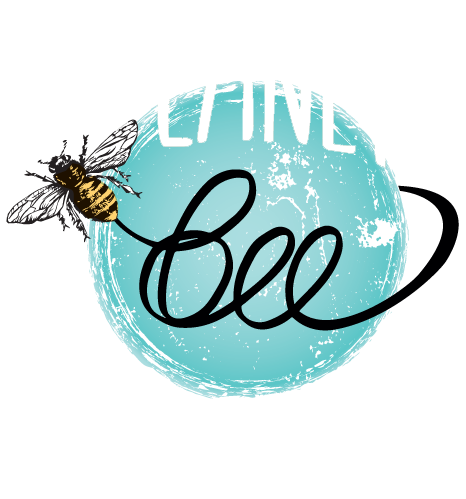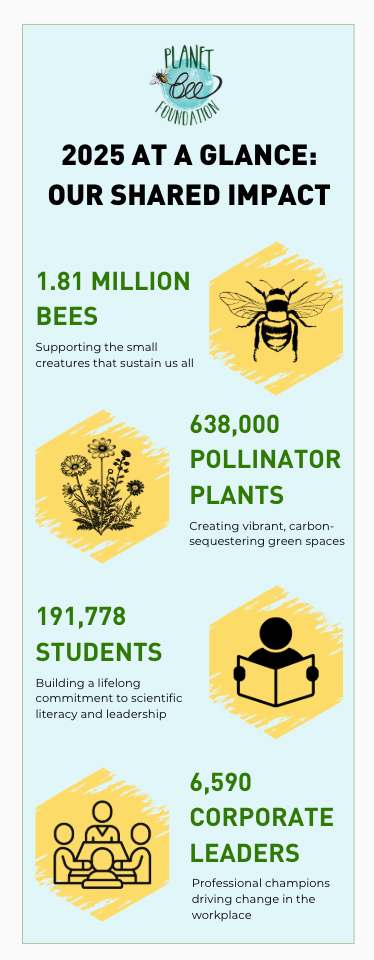City Bees, Big Impact: Meet Planet Bee’s San Francisco’s Beekeeper
- Ray Choudhury
- Jul 21, 2025
- 4 min read
Urban beekeeping isn’t just about honey—it’s about resilience, education, and reimagining our cities as thriving ecosystems. In San Francisco, Planet Bee beekeeper Sam Nelson is proving just how powerful a rooftop hive or a schoolyard colony can be. Through hands-on work in school gardens and community green spaces, Sam is helping to connect people to pollinators, one bee at a time.

Sam Nelson is a valuable member of Planet Bee’s network who understands the complexity and responsibility behind urban beekeeping, not only taking care of San Francisco’s bees but spreading the joy of stewardship to future generations. This National Urban Beekeeping Day, July 19th, we share their story to encourage community members to get involved with beekeeping in your own areas and to learn how best to support local pollinators!
Getting Started
What first sparked your interest in beekeeping? Was there a particular moment or experience that drew you in?
I spent the first year of the pandemic doing climate action work in San Jose, planting trees through an urban forestry nursery. A coworker, who cared for the two hives on-site, invited me to help out with an inspection one day. It was such an exciting, grounding, and unique experience, and it has rippled through my life in different ways ever since.
What does being an “urban beekeeper” mean to you?
In an urban environment, I see honeybee stewardship as a way to connect the ecologies of different neighborhoods and plant populations. In a city as compact as San Francisco, bees from one central hive could potentially forage across most neighborhoods if needed. To me, being an urban beekeeper means not only caring for the honeybees in my apiaries, but also creating and stewarding native habitats for indigenous pollinators and diverse bee species that may risk being outcompeted by non-native honeybees. It’s a complex relationship that I’m honored to be part of, and I try to stay thoughtful and aware of the many interconnected dynamics of urban ecological stewardship.

What’s one of the most valuable lessons you’ve learned about bees or beekeeping since you started?
Honeybees are masters of reciprocal relationships and community care. Each bee has an important and dynamic role, and together they ensure the health and growth of the hive. Through my relationship with bees, I’ve gained insight into non-hierarchical structures, interconnectedness, and harmony, lessons I hope humans can use to build more intentional and emergent relationships with nature and with one another.

Tips for City-Based Beekeepers and Land Stewards
What advice would you give to someone who wants to start beekeeping in a city environment?
Find local hives and the people who steward them, and ask if you can observe, shadow, or help out. Many beekeepers are eager to share their knowledge with curious learners. If working directly with bees feels out of reach right now, start by paying attention to the pollen-producing plants around you. Be a gentle steward of the land you inhabit: weed your park strip, volunteer with your neighborhood garden, or plant flowers on your balcony.
Sharing the Joy: Access Through Education and Community
What do you find most rewarding about working with Planet Bee’s Adopt-a-Hive program?
I love sharing the joy of beekeeping and ecological stewardship with as many people as possible. Beekeeping has a steep barrier to entry—equipment, knowledge, and space—and the Adopt-a-Hive program helps us reach people who might not otherwise have access to this experience.

Can you share a memorable moment you’ve had working with our corporate or school partners?
After inspecting and rearranging hives at Sutro Tower, I was loading empty frames of honeycomb into my car when a Parks Department after-school program happened to walk by on a hike through the Interior Greenbelt. I was still in my suit, and about ten kids rushed over, curious about what I was doing. I showed them the honeycomb, explained my tools, and introduced them to the basics of beekeeping. It was such a sweet, spontaneous moment. Kids are often excited sponges. While adults may see bees as dangerous stingers, when we make bees accessible and exciting, children are captivated. Education is key to keeping both bees and humans safe and thoughtful.
Beyond the Honeybee: Rethinking Pollinators for a Sustainable World
If you could dispel one myth or misunderstanding about bees, what would it be?

Many people think honeybees are the world’s most important pollinators, but moths, butterflies, flies, bats, birds, and others are just as essential to a healthy ecosystem. Honeybees were brought over from Europe in the 1600's. Native pollinators face extinction if we only focus on honeybees. We need to protect all plants and pollinators, not just the most popular ones.
What are your hopes for your own beekeeping journey in the years to come?
I hope to keep learning from bees about reciprocity and horizontal governance, and to share those lessons with my communities. I also want to center native pollinators in my work as an urban beekeeper in ways that are intentional, generative, and sustainable.
Your Role in the Buzz: Take Action for Urban Pollinators
In honor of National Urban Beekeeping Day, Sam’s story reminds us that urban beekeeping is about much more than honey, it's about connection, care, and ecological awareness. While not all of us tend hives, we can follow Sam’s lead by supporting native pollinators in our own neighborhoods. By observing bees and other pollinators through platforms like iNaturalist, we help scientists track vital trends and protect the biodiversity that supports us all. Join our BuzzWatch 2025 Summer BioBlitz to take part in this community science effort—our Planet Bee community has already logged over 800 native pollinator sightings this summer! Together, we can take intentional, generative, and sustainable steps to support pollinators and the ecosystems they help sustain.




